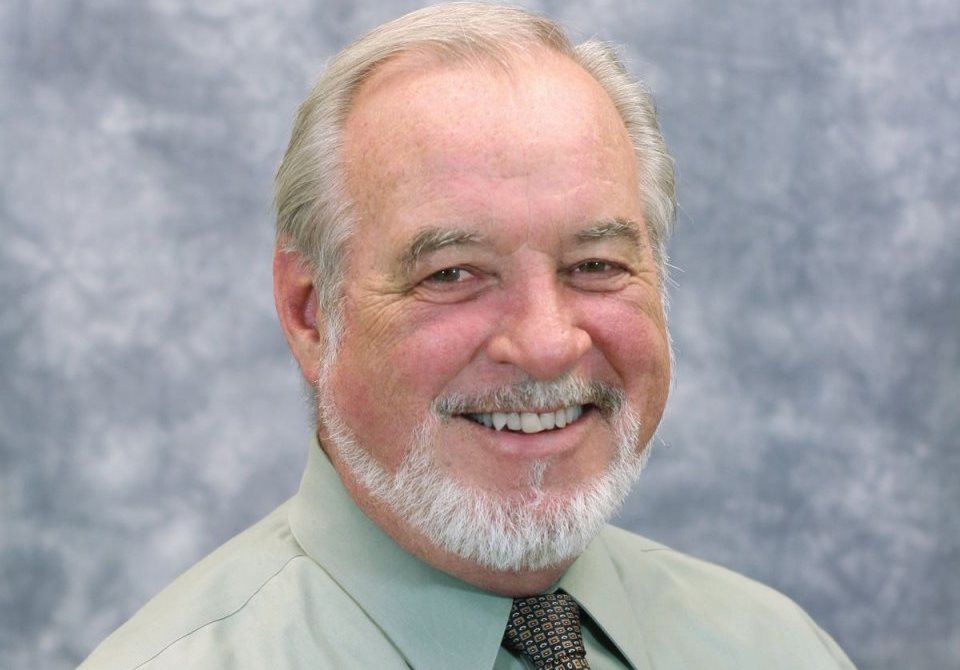Communication Breakdown at Milwaukee County?
Will Wisconsin Center District take over the Marcus Center? Frustrated supervisors grill Abele administration and get nowhere.
Every time it seems the relationship between Milwaukee County Executive Chris Abele and the county board can’t get any worse, it gets worse.
Teig Whaley-Smith, Director of the Department of Administrative Services and part of Abele’s brain trust, appeared before the Milwaukee County Parks, Energy and Environment Committee in the Milwaukee Courthouse yesterday. The purpose of the meeting was to inform the committee of the proposed changes potentially affecting the Marcus Center of Performing Arts as part of the proposed legislation to fund a new Bucks arena. The arena development envisions a sort of entertainment hub at the corner of N. 4th St. and W. Highland Ave., not far from the Marcus Center on Water and State streets, but the negotiations over how to fund the new arena also envision the creation a new entity that would run various downtown entertainment facilities, including the Marcus Center.
The proposal envisions turning the Wisconsin Center District (WCD) into a kind of super entertainment district. The WCD, which has a public board and the power to levy taxes like the hotel room and car rental taxes, currently runs the convention center, the UWM Panther Arena and the Milwaukee Theatre. But under this plan the WCD would also take over running the Bradley Center (now a state-chartered non-profit that has gotten occasional state funding) and the Marcus Center of Performing Arts (chartered under the non-profit War Memorial but long funded by Milwaukee County.) All of these entertainment structures get some public funding, but are not managed under one entity and “people have seen the inefficiencies of that,” Whaley-Smith contended in his remarks to the committee. “If there were one entity that were responsible for…capital decisions regarding those assets…it would be a better way to manage those facilities,” he added. Creating a super WCD, he added, made more sense than creating yet another entertainment district for the new arena, or putting it under the current Bradley Center board.
“In the current draft of the [negotiated lease]…it leaves the flexibility to allow for a change in how cultural assets are funded,” Whaley-Smith answered. He added that, “it doesn’t make a lot of sense to have two publicly funded entities competing with one another for business…so this synergy needs to happen… That problem is likely to be fixed by this legislation going forward.”
But committee members pressed for details. “While you are conceiving of the idea, and negotiating the idea you can’t tell us about the idea?” Broderick pointedly queried. Whaley-Smith responded that the “term ‘superboard’ did not come from [the county executive’s office]…. The goal is to make sure we have a united front when we’re making decisions about publically funded assets and that it’s one entity that gets appointments from multiple different layers of government to make those decisions.”
Broderick conceded the merits of a united front, but noted that the county executive cannot transfer land or buildings without county board approval. Broderick directly asked, is “[the county executive] planning on bringing any recommended transfer before the board?”
“We need to wait for the legislation to find out how this…process is going to work going forward,” Whaley-Smith replied. But the vagueness of this reply left other board members voicing their frustration over the lack of communication from the executive office.
Supervisor Steve F. Taylor turned the debate to what appeared to be the biggest question and fear of the committee: where will the future funding of the Marcus Center (which has gotten county funding since it opened its doors as the Performing Arts Center in the 1960s) coming from? “If the Marcus Center is removed from [the Parks Committee’s] control why would [the committee] be funding it?…What about the money that [the committee] has already allocated for the Marcus Center? Are the county tax payers going to be reimbursed?” questioned Taylor. Smith continued to avoid specifics, countering that “we should wait for the state legislation so we can provide direct answers.” That in turn earned this blast from Taylor: “I don’t think you are being honest on most of what your saying. I’ve lost a lot of respect from you.”
Broderick attributed the irritated atmosphere at the committee hearing to a lack of communication by the executive branch. He ended the spirited debate with a plea that Abele’s office keep the committee informed of the administration’s actions in Madison. “To exclude the people by the way of the people’s representatives,” Broderick thundered, “is ill advised.”























The “inefficiencies” to which the Mr. Whaley-Smith refers may be negligible. Or they may be mostly in that the Bradley Center, which was completely donated, now is $20 million in debt, plus having deferred maintenance of at least $20 or $30 million. That seems to be the result of a ludicrous “no-rent lease” deal with the Bucks. Thus, the BC must hand over about 42% of its total earned income from products and services to the Bucks (including from luxury suites, concessions, etc. from all events, not just Bucks games). Is it any wonder why they can’t afford to maintain the place?
The WCD reports that it pays all its operations bill with income it produces. They also say they have NO deferred maintenance on any of their properties, including an arena built in 1950. Sounds pretty efficient.
The Marcus Center does have deferred maintenance but seems to be quite adequately serving many, many community needs, far more than another arena probably ever will. They also have a huge donor base, because of the diverse community services they provide.
This whole “super-district” scheme sounds like a way to siphon off some of the tax money now paying off construction debt for the convention center and Milwaukee Theater renovation. That debt is likely fixed, so what efficiency can be achieved?
This plan could also be a way for the county to abdicate stewardship for another of its assets, as attempted with parks. Chris Abele is trying to dismantle county government and its role in providing cultural and recreational assets for the greater good.
The Bucks, a for-profit business, will reportedly manage the new arena. So how will that work, in terms of this state-chartered district? Pols seem ready to give them the keys to the city and 30 acres to develop as they wish. Will they also get to dictate how the Marcus Center and WCD are run? Is that part of the grand, and secret, “efficiency” scheme?
“The WCD, which has a public board and the power to levy taxes like the hotel room and car rental taxes, currently runs the convention center, the UWM Panther Arena and the Milwaukee Theatre.” “The WCD reports that it pays all its operations bill with income it produces. They also say they have NO deferred maintenance on any of their properties, including an arena built in 1950.” From 2009 http://www.google.com/url?sa=t&rct=j&q=&esrc=s&source=web&cd=8&cad=rja&uact=8&ved=0CE4QFjAH&url=http%3A%2F%2Fwww.county.milwaukee.gov%2FImageLibrary%2FGroups%2FcntyExecutive%2FFinance_ReformFINAL3.24.09.pdf&ei=faqBVZi-EIS7ggTDgoH4Dg&usg=AFQjCNE6_Xr_A6eRcOReffmh1Lh6WtcfLg&sig2=3XVndtJAmhiCEmY0dwG-EA&bvm=bv.96041959,d.eXY
Who then is paying the $185 million bond issue that funded the Midwest Express Center project? Beginning in October 2001, the Auditorium was converted into a theater. The project, which cost $41.9 million, was completed on November 7, 2003 This was not paid off with revenue collected. After reading this article I expect to see “Professor” Harold Hill marching down State Street playing 76 Trombones.
County Supervisors aren’t the only officials being kept in the dark. http://legis.wisconsin.gov/senate/carpenter/PressReleases/Pages/Bucks-Arena-Plan-%E2%80%93-What-Did-We-Just-Vote-on-Today.aspx
Madison – Today State Senator Tim Carpenter (D-Milwaukee) announced that he has voted against tax exemptions for the governor’s proposal for a new Bucks arena.
“As a member of the Joint Survey Committee on Tax Exemptions, I voted today against the governor’s proposal for the new Bucks arena,” said Carpenter.
Governor Walker’s proposed budget included a level of public financing for the construction of a new Bucks arena. This included issuing $220 million in bonds that were to be paid off by diverting increased revenue from player’s salaries (aka, the “jock tax”). This proposal had a public hearing and received lots of scrutiny and a full debate.
“Today’s committee review of the Bucks arena tax exemptions in the governor’s budget was a charade. The committee voted on the governor’s proposal, but we all know the governor’s proposal is no longer on the table. In fact we haven’t seen a draft of the secret deal and yet we are expected to blindly support something neither legislators nor the taxpaying public knows anything about,” said Carpenter.
“Despite repeated requests, the written details of the actual proposed deal have not been forthcoming. The select few who have been making this deal want to present it as a complete package and rush it through the legislature for a “yes” or “no” vote, with no changes,” said Carpenter.
“This deal should have a public hearing, a full explanation and a complete vetting of the financial ramifications. Putting such a deal into the state budget avoids proper scrutiny and public debate, and only allowing the Joint Survey Committee on Tax Exemptions to review the old proposal does not move this process properly forward,” said Carpenter.
To clarify, there may be ways to make any/all of these entities more efficient, but without an impartial audit we may never know what those ways might be. Just having a wily-nilly merger of very diverse operations, without any thought beyond backroom finagling will not achieve that goal. It’s more likely to cause many more problems, and inefficiencies, than it hopes to solve (if that is truly the intent, and not just raiding a taxing stream).
Perhaps promotion of Milwaukee (through Visit Milwaukee), including all downtown attractions, could be more efficient and effective. A super-district merger is not needed for that to happen. Again, it’s something that can be analyzed objectively, with appropriate decisions to follow.
Re: Observer’s comments, the Wisconsin Center Project and the Milwaukee Auditorium Renovation Project were major capital projects funded through borrowing; those bonds are repaid from hotel/food/rental car tax receipts, sometimes supplemented by operating revenues (rent, fees, parking, concessions, etc.). The Wisconsin Center District directs operating revenue, not tax receipts or borrowing, to maintenance and repairs such as cleaning, painting, repaving, tuckpointing, replacing carpeting, and replacing or repairing other finishes, furnishings, etc. Having “no deferred maintenance” means work on identified needs has been budgeted and is either completed, in progress, or scheduled.
Separately, “M” makes a great point that the Abele plan was thrown together without adequate vetting or transparency. Abele clearly seeks to shed County responsibilities, payroll and pension obligations, but simultaneously increase his own power! I am concerned that his plan appears to trade away expanding the convention center for magic beans. Because they bring NEW money into town, conventions have an economic impact ten time that of spectator events.
Thanks Urban Dweller. I tried and failed to find out information on these projects. Any idea on the balance sheets? Is there a sunset date for these bonds? The Milwaukee Theater sits empty so often it’s hard to believe it could ever pay for itself. What happens if the receipts and operating revenue doesn’t cover the repayment costs of the bonds?
Observer: I see that the Wisconsin Center District has a lot of data on its website to wade through, including financial reports going back years. But the summary is quite informative (way more info than on Bradley Center site, though an annual report is available)
http://wcd.org/categories/12-wcdinformation/documents/1-about-us
The Milwaukee Theatre is under-used, but the WCD pools all its income and does pay its bills. The WCD acting CEO recently told the common council the original plan was always to have all WCD properties linked with skywalks, so arena and theater can be used more conveniently for convention events. He said that would be part of any expansion, which now may not happen for decades.
Merci beaucoup.